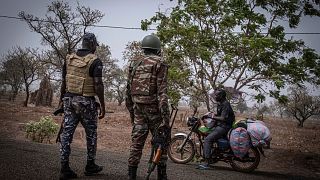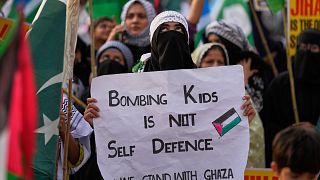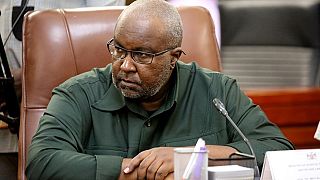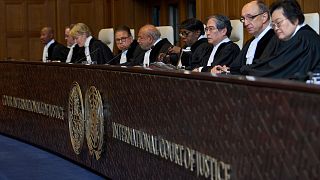Morocco
UN rights experts decried Monday the lack of accountability for the "stark dehumanisation of African migrants" after many were killed trying to cross from Morocco to Spain in June.
"It is alarming there is still no concrete accountability months after dozens of migrants of African descent, including refugees and asylum seekers, died during violent encounters with border security forces in Melilla, Spain," the independent experts said in a statement.
The incident on June 24, when around 2,000 mostly Sudanese nationals tried to enter the Spanish enclave, marks one of the deadliest attempted crossings in years.
The United Nations rights office said at the time that at least 23 people had died.
But in Monday's statement, the UN Special Rapporteur on contemporary forms of racism, racial discrimination, and xenophobia and the working group of experts on people of African descent put the toll at least 37.
"And dozens more were injured because of the excessive and lethal use of force by Moroccan and Spanish law enforcement authorities," said the experts, who are appointed by the UN Human Rights Council but do not speak on behalf of the world body.
The experts said they condemned the continuing lack of accountability for the "stark dehumanisation of African migrants at the perimeter of Europe".
"The violence documented in videos of the scenes at Melilla's gate tragically reveals the status quo of the European Union's borders, namely racialized exclusion and deadly violence deployed to keep out people of African and Middle Eastern descent, and other non-white populations," they said.
The migrants, the experts warned, were being pushed back "irrespective of their rights under international refugee or international human rights law."
The experts said they had sent communications to the Spanish and Moroccan governments in July expressing concern about the violence and had received replies.
But they said they had yet to see signs of concrete accountability.
"Thorough investigation, reparations to victims and their families, as well as the guarantee of non-repetition are required under international human rights law," they said.
The experts pointed a finger at Europe as a whole.
"The events in Melilla, as well as the many other incidences of border violence and death, point to a willingness to sacrifice the lives of African and other migrants and refugees to secure the perimeter of Europe," they said.
"Dead bodies are a seemingly tolerable feature of the borders of countries that ostensibly committed to human rights as a universal project."













01:09
NGOs sue Spain for ignoring illegal fishing threat to African coasts
00:47
Ghana: President Mahama suspends Chief Justice Gertrude Torkornoo
Go to video
Police rescue 33 West Africans from a human trafficking scam in Ivory Coast
Go to video
Pope Francis' funeral scheduled Saturday April 26
Go to video
Kinshasa reacts to Trump's claim that 'many' Congolese come to US
Go to video
Exhibition in Morocco explores a world of color